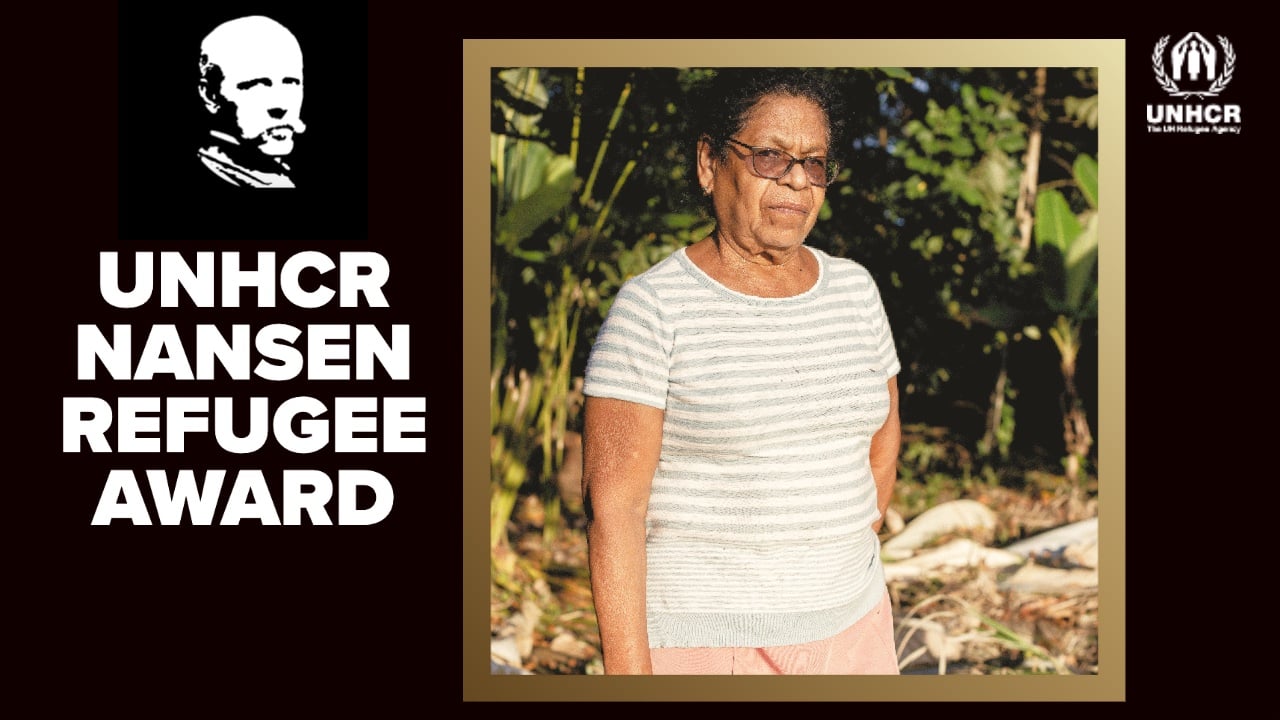UNHCR calls on women leaders to empower female refugees
UNHCR calls on women leaders to empower female refugees

GENEVA, December 12 (UNHCR) - A Norwegian polar explorer joined more than 50 senior businesswomen and aid workers in Geneva earlier this week to look at ways in which women leaders could help female refugees empower themselves through livelihood projects.
"I really believe in empowering displaced women and girls," Norwegian Refugee Council Goodwill Ambassador Liv Arnesen told participants in her keynote address at Monday's Women Leading for Livelihoods (WLL) meeting in UNHCR headquarters.
"Women and girls have survived the worst, they want to move on with their lives and education and creating businesses are ways to do that," added Arnesen, who in 1994 became the first woman to ski solo and unsupported to the South Pole. She recently met refugee women in Kenya and Burundi.
The refugee agency's Assistant High Commissioner for Protection Erika Feller, kicking off the day-long meeting, told participants that a lack of livelihood opportunities could lead to protection risks, especially for women. She added that many women had to resort to survival sex to earn enough money and food to provide for themselves or their children.
"Refugee women often have skills and resources but need additional support to become self-reliant and avoid protection risks, such as survival sex," echoed Marjon Kamara, head of UNHCR's Africa bureau. "An initiative like WLL aims at doing just that."
Mireille Mugisha, a 26-year-old economics student from Burundi, urged the business executives and philanthropists to support livelihood projects for refugee women. "When you empower a woman, you support the entire household ... you help eliminate child labour, you ensure girls' access to education," she said. "You also reduce infant mortality rates, improve nutrition and diminish poverty, exploitation and dependence on food aid."
All participants stressed that it was essential for refugees - especially female refugees - to develop skills in order to earn an income and support their families. Refugees must be given the opportunity to build up a lasting future whether they repatriate, integrate locally or resettle in a third country.
Participants at Monday's meeting were also joined on teleconference call by Princess Haya Bint Al Hussein, daughter of Jordan's late King Hussein Bin Talal and wife of Dubai ruler, Sheikh Mohammed bin Rashid Al Maktoum.
Women Leading for Livelihoods was set up by UNHCR to recruit the help of women leaders in promoting economic self-reliance and empowerment of refuge women and girls around the world.
"The goal is to improve refugee women's lives by recognizing their right to work, their potential in creating micro-businesses and to help them to become self sufficient," said Gry Tina Tinde, who is the special adviser on gender issues to High Commissioner for Refugees António Guterres.
"We want women leaders to contribute with their expertise in creating a business, we want them to contribute with their ideas, we invite them to finance refugee women's projects" said Tinde.

She noted that women at Monday's meeting had agreed to support projects ranging from language and literacy training to vocational and skills training as well as micro-credit and small business development. Outside support can help refugee women create small- and medium-sized enterprises such as chicken farms, mushroom production, carpet weaving, furniture-making and clothes shops.
Meanwhile, a group of WLL members are expected next year to visit refugee camps at Dadaab in north-east Kenya, which hosts some 172,000 predominantly Somali refugees - half of them women and girls.
"Access to livelihoods empowers women and allows them to have a stronger voice in their communities, including in peace-building activities," said Line Pedersen, who works in UNHCR's peace-building, livelihoods and partnership section. "This is especially crucial in a country like Somalia or in a protracted displacement situation like Dadaab."








